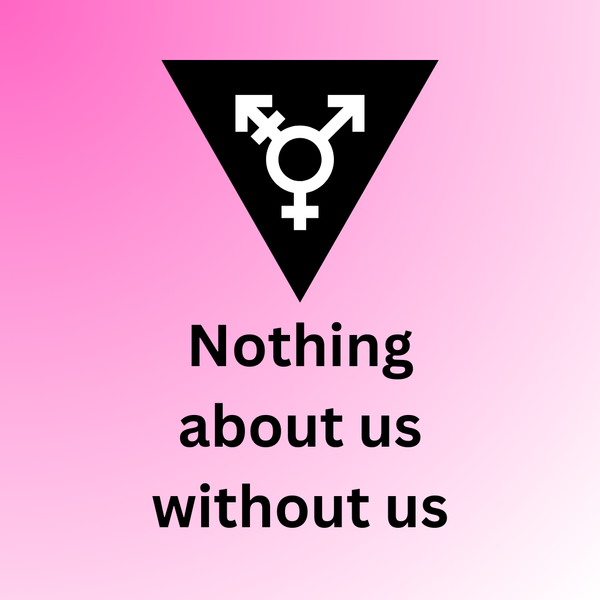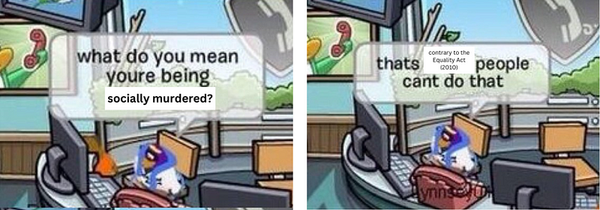Who is welcome in queer spaces?
It’s June and for LGBTQ+ people who spend way too much of our time on the internet that means one thing — discourse! Pride season always…
It’s June and for LGBTQ+ people who spend way too much of our time on the internet that means one thing — discourse! Pride season always brings a lot of fun arguing about what sorts of people should be welcome at Pride and who can enter “queer spaces”. Is a bi woman’s cis het boyfriend welcome in queer spaces?
Of course, the reality is that anybody who has spent a lot of time in LGBTQ+ venues knows that people of any combination of sexuality and gender identity can enter them (age restrictions on bars notwithstanding) and Pride season is no different. The argument isn’t really about who can physically enter a gay bar or join a parade but about who the spaces belong to. And I think that’s a shame because there are people who can’t enter a lot of queer spaces or are made distinctly unwelcome in them.
For LGBTQ+ Black, Asian and minority ethnicity (BAME) people, gay bars can be as much a site of exclusion and discrimination as one of acceptance. Stories abound about LGBTQ+ BAME people being subjected to racial slurs and even physical violence in queer spaces or being refused entrance altogether, with research by Stonewall finding that half of all BAME respondents had experienced racism from other LGBTQ+ people. Is a bi woman’s cis het boyfriend welcome in queer spaces? Depends on whether or not he’s white.
For disabled LGBTQ+ people the question isn’t necessarily just whether they’ll be welcome in in LGBTQ+ venues (though it’s not hard to find examples of direct discrimination), it’s often whether or not they can physically get in. If you’re a gay wheelchair user looking for somewhere to drink in Soho, you might just be shit out of luck. From personal experience, the vast majority of bars in Manchester’s gay village and Liverpool’s gay quarter have steps at the entrance, often on narrow, cluttered pavements. Is a bi woman’s cis het boyfriend welcome in queer spaces? Not if he can’t get up and down the stairs.
None of this is inevitable. Venues don’t have to let staff and punters get away with rampant, violent bigotry, they don’t have to use the accessible toilet as a storage space or fail to have something as simple as a wheelchair ramp. We, the wider community, don’t have to be silent about how many of us are being excluded. There are real fights to be had over who is and isn’t welcome in LGBTQ+ venues and community spaces. Maybe this year instead of worrying about the odd straight person who might turn up at the bar we should demand that the queer people who are being left outside be let in.


